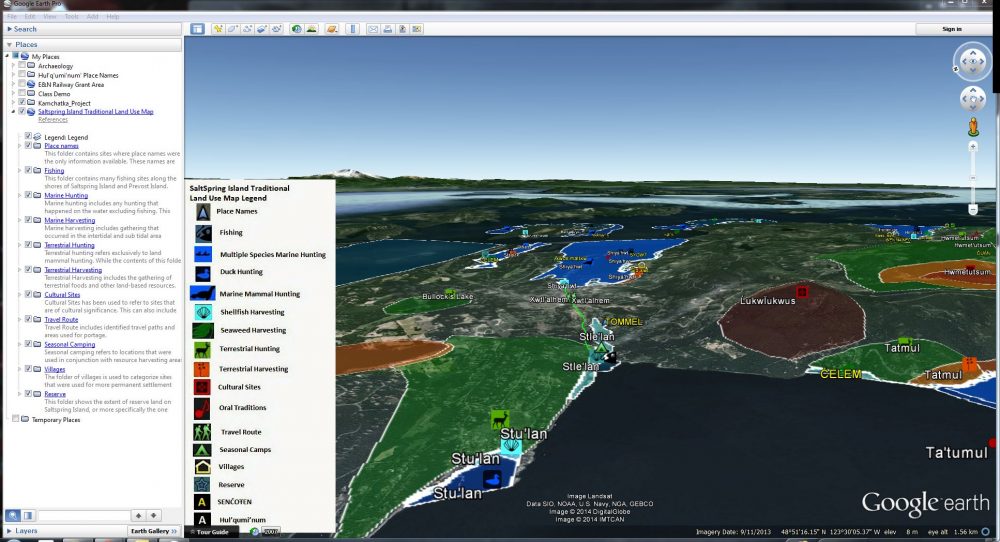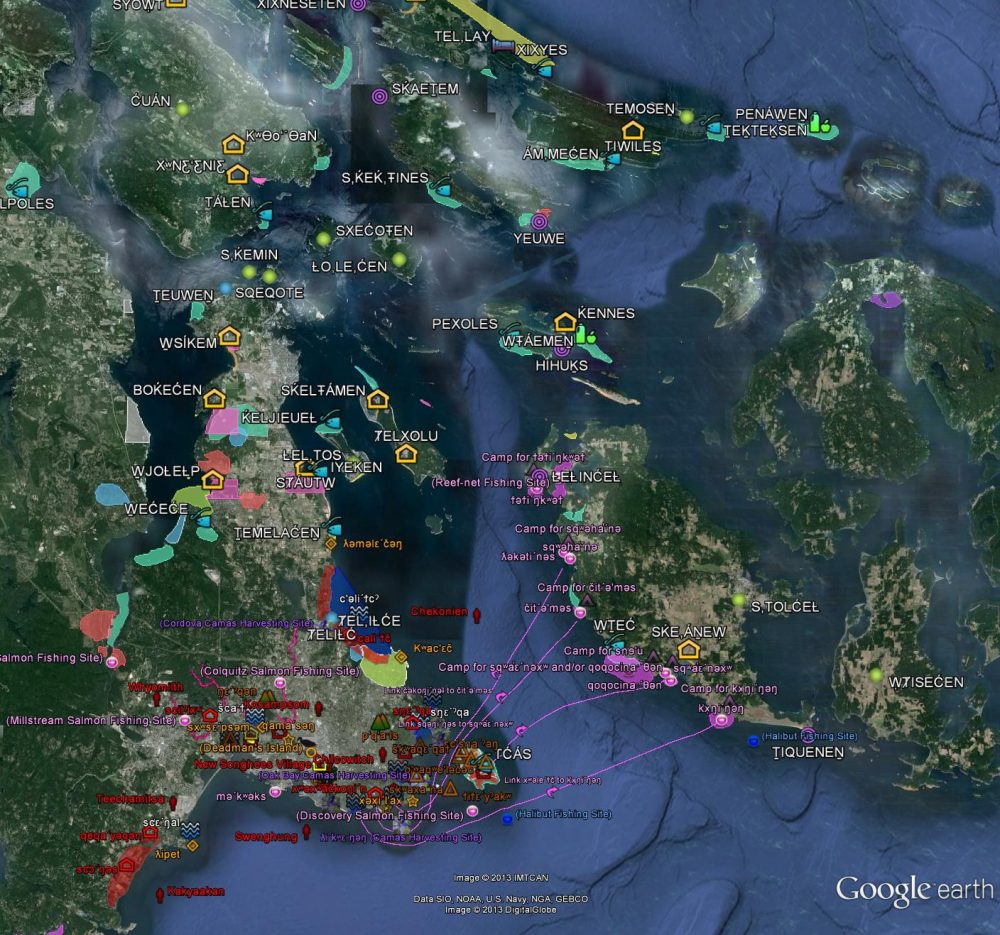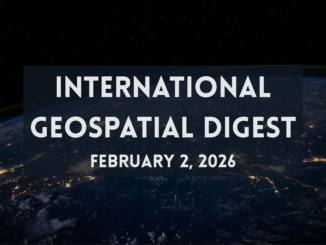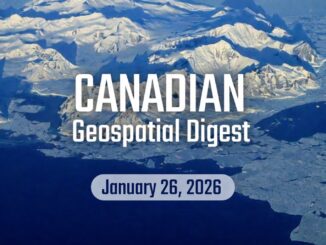Indigenous communities across Canada are engaged in intensively mapping their lands, waters, resources and knowledge. These maps have unparalleled importance today not only for future generations celebrating Indigenous knowledge, but in discussions over land and resource development and the recognition of Indigenous rights. The University of Victoria is continuing its leadership with collaborative Indigenous mapping research by bringing together more than 100 representatives from Indigenous organizations across Canada for a four-day intensive workshop beginning Aug. 25.
Coast Salish places on Salt Spring Island. Part of a digital-atlas project by UVic student Britney Oswell on Indigenous land use, using Google Earth advanced technologies. (Image courtesy of UVic Mapping Lab)“This workshop connects Indigenous communities from across Canada who are using sophisticated mapping technologies to assert Aboriginal title and treaty rights, and to celebrate cultural knowledge about the land,” says Dr. Brian Thom, assistant professor of anthropology and co-organizer of the workshop. Thom first came to UVic in 2010 after 13 years as a researcher and negotiator for several First Nations in the BC Treaty process. He established UVic’s Ethnographic Mapping Lab, which provides a collaborative space for research with Indigenous communities about traditional use sites, cultural sites and place names using leading digital technologies.
The Indigenous mapping workshop will highlight presentations by communities actively engaged in documenting Indigenous land use and occupancy, mapping to support referrals and consultation, Indigenous land use planning, Indigenous environmental monitoring and inter-generational knowledge mobilization.
“Indigenous land use and occupancy mapping allows Indigenous Peoples to catalogue, safeguard and convey the collective knowledge of our communities. Our knowledge and our laws compel us to defend and exercise our Aboriginal Title, Rights and Treaty Rights through negotiation, litigation and at times, confrontation on the land itself,” says Grand Chief Stewart Phillip, president of the Union of BC Indian Chiefs. “In the wake of recent Supreme Court decisions, most recently the game-changing Tsilhqot’in decision, we can see how these mapping technologies will help transform the engagement of government and industry with First Nations.”
Google Earth – A screen shot from a collage of UVic student projects in a fourth-year anthropology course, “Ethnographic Mapping and Indigenous Cartographies.” (Courtesy of UVic Mapping Lab)
Workshop participants will also have the opportunity to share best practices, as well as receive training on practical mapping tools. Steven DeRoy, director of the research cooperative The Firelight Group, has led innovations in these mapping projects, including developing the ‘direct-to-digital’ method which is largely replacing paper mapping in this kind of research, and will offer a keynote address.
Staff from Google Earth Outreach will provide deep-dive technical training sessions for participants looking to leverage important technologies like Google Earth.
“Indigenous communities in Canada have been at the forefront of applying Google Earth & Maps as innovative tools in preserving traditional culture and managing lands and livelihoods,” says Raleigh Seamster, program manager for Google Earth Outreach. “We hope to put our mapping technologies in the hands of even more Indigenous people through this workshop.”
The Indigenous Mapping workshop is co-hosted by UVic (the Ethnographic Mapping Lab, Department of Anthropology), the Union of British Columbia Indian Chiefs, The Firelight Group and Google Earth Outreach.
Media contacts:
Brian Thom (Anthropology) at 250-210-0972 or [email protected]
Grand Chief Stewart Phillip (Union of BC Indian Chiefs) at 250-490-5314 and @UBCIC
Anne MacLaurin (Social Sciences Communications) at 250-217-4259 or [email protected]
Tara Sharpe (UVic Communications & Marketing) at 250-721-6248 or [email protected]
Follow us on Twitter: @uvicnews
UVic media releases & resources for journalists: http://communications.uvic.ca/media






Be the first to comment